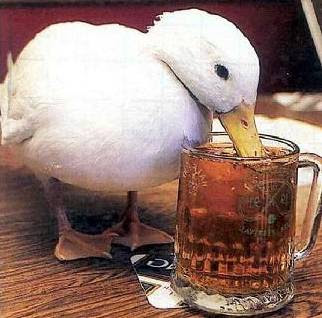GetBuLLish wrote:I think this thread has been a great lesson in how people tend to do everything possible to avoid admitting they're wrong, no matter how obvious their mistake is.
I do it all the time, to be sure. But in this situation, I hope I would have admitted fault. For example, if Rose played against NO and looked fine and had his minutes curbed similar to all the other starters (due to it being a blowout) and then played against Charlotte/looked fine/had his minutes curbed similar to all the other starters, then I hope I would have admitted that I was being overly cautious.
But of course, that is far from what happened.
DuckIII wrote:The beauty of being me is that I'm not arguing what is right or wrong. I'm admitting my ignorance of the underlying data that would need to be known to even form that opinion at all. But your internet medical degree has evidently given you sufficient expertise to form a definitive opinion on a matter of science and medicine with regard to specific human body that you don't have access to.
Impressive. But I'm not so skilled as all that. So I defer to actual doctors dealing with the actual patient until we have a Deng like situation (which is the only time I'm aware of the Bulls medical staff misdiagnosed anything or mistreated anything).
Duck, tell me whether or not you agree with Doug's following post, where he lays out 3 possible reasons for Rose sitting out against Charlotte. Do you believe there are more possibilities, i.e. one that would back up your point?
dougthonus wrote:1: Why did he need rest today but Wednesday?
A: His back is better, but they just wanted to rest him for the heck of it.
--- Would have made more sense to rest him Wednesday then, and we'd probably agree we rested him on the wrong day.
B: His back is the same, but we decided to rest him now.
--- The decision to rest is now arbitrary, but the timing would have made more sense on Wednesday when if rest isn't allowing it to recover he'd have had the option of resting more.
C: His back is worse
--- The overwhelmingly likely scenario in which this is true is that he aggravated it by playing Wednesday in which case we've worsened an injury in a game the Bulls would have cruised to victory in.
In any of the three scenarios, it still ultimately would have made more sense to rest him Wednesday. I don't think it's some ultra critical failure, but it seemed like an obvious choice at the time.
(1) I've been wrong about a mountain of stuff on this board over the years, and have admitted that wrongness too many times to count. So spare me the ironically arrogant lesson in humility.
(2) Yes, I absolutely believe there are countless other possibilities, and I've stated them repeatedly in this thread already. First, no one has been able to definitively (or at all) establish that testing a spasmic back is a medically unsound option and that in specific instances it may be better for lower back muscles (or the leg tendinitis which was actually causing the back to adapt, which in turn caused the spasms) to be exercised in limited minutes rather than to sit dormant or be tested through actions unrelated to the ultimately desired action (playing in an NBA basketball game).
It is indeed entirely possible that
because the Hornets suck, and that since Derrick Rose's anticipated activity is the playing of NBA basketball, that the Hornets (rather than the Celtics) were an ideal opponent against whom to test how Rose's back would in fact respond (rather than hypothetically) in performing that action. Especially since, if it did not respond well, the staff knew that 5 more days remained until the next meaningful opponent arose on the schedule.
Second, doug's third option
presumes that the limited game play enhanced the harm to Rose's back. This is far from known. See my prior post regarding the "ebb and flow" of injuries of this type and myriad causes for changes in condition not merely over days, but over hours. Further, playing him limited minutes against NO and then none against Charlotte would be consistent with my
speculation above (which I am at least honest enough to acknowledge I am engaging in), and that in fact his back might not even be worse at all.
And if it is worse, which it may very well be, it may not be connected to the decision to let him test it against NO.
Now, maybe a report will come out saying that during, immediately after, and ever since the NO game his back has tightened up like a drum. In which case I would of course join in the hindsight analysis that he should not have played (which is different than definitively saying he should not have played based on the information present at the time that decision was made).
In other words, no I don't agree with doug's post since it is specifically limited to scenarios which support his premise.



















